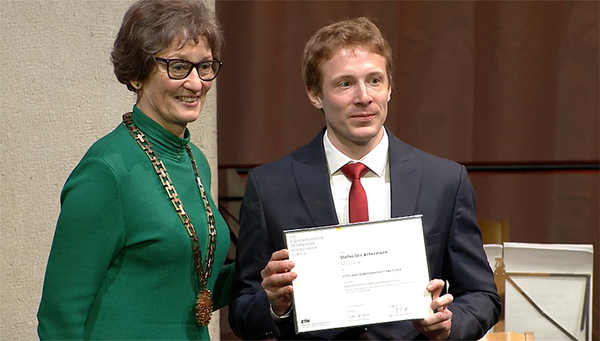Archive detail
Stefan Achermann wins the 2019 Otto Jaag Water Protection Prize
November 18, 2019 |
Micropollutants from medicines, personal care products, pesticides and industrial chemicals find their way into our wastewater every day. In sewage treatment plants, some of these substances are converted by microorganisms in activated sludge into various degradation products, which can also enter surface-water systems. Until recently, very little systematic research had been carried out into the exact processes that take place here. In his dissertation in the Department of Environmental Chemistry, Stefan Achermann used chemical-analytical methods to investigate the reactions that occur when different groups of micropollutants are degraded and which degradation substances are produced. It turns out that micropollutants with a similar molecular structure undergo similar degradation reactions, even if different communities of microorganisms are present. This suggests that a certain set of enzymes catalyses these degradation reactions. By combining chemical-analytical investigations with molecular-biological methods, Stefan Achermann was able to identify the groups of enzymes involved in these degradation reactions. Based on these findings, the degradation reactions and the enzymes involved can be predicted for other chemicals with similar molecular structures.
Stefan Achermann's data on degradation reactions of micropollutants also provided the foundation for a joint project with Syngenta, which aims at developing an experimental protocol based on activated sludge in order to predict the degradation rates of pesticides in soil.
Stefan Achermann was also able to observe that most micropollutants are degraded faster with higher sludge ages in activated sludge. An exception is sulfonamide antibiotics, which are degraded more slowly with increasing sludge age. These findings are relevant in practice because sludge age is an important operating parameter in sewage treatment plants.
Following a short postdoctoral position at Eawag, Stefan Achermann now works at the Office for Water and Energy of the Canton of St. Gallen. For his dissertation Stefan Achermann will also be awarded the ETH Medal, which he will receive in January 2020.

